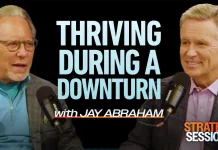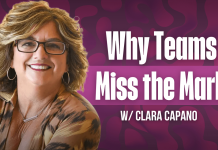In a new episode of The Small Business Show, author, Forbes contributor, and Red Rocket Ventures Managing Partner George Deeb joins us to dissect one of the most costly mistakes a small business can make: hiring the wrong salesperson. With more than 1,000 variations of sales roles possible, Deeb walks through the key differences that determine success or failure in a sales hire—and shares real-world advice to help business owners make better decisions.
According to Deeb, hiring the right salesperson isn’t a one-size-fits-all process. Based on his framework of 10 distinct hiring criteria—each with two possible decision points—there are over 1,000 different types of salespeople. The key, he explains, is for business owners to clearly understand what type of sales role they need to fill and match that to the candidate’s true capabilities and preferences.
One of the most common hiring mistakes, Fitzpatrick admits from personal experience, is bringing on a “sales manager” when the role actually requires a “doer.” Deeb confirms this is the first hiring filter: Doer vs. Manager. A doer is someone who actively sells and creates business, while a manager oversees a sales team. Misalignment here often leads to confusion, unmet expectations, and missed sales targets.
Deeb also details several other critical distinctions:
- Hunters vs. Gatherers – Hunters generate leads through outreach; gatherers convert inbound leads. Hiring someone who expects leads when the role requires self-generation is a costly misstep.
- Outbound vs. Inbound – Outbound sellers travel and initiate contact, while inbound sellers typically work in-office, handling leads delivered by marketing.
- Remote vs. In-Office – Deeb, once skeptical of remote sales teams, now sees data-driven management as a viable and even superior method in many cases. He shares that Red Rocket’s acquisition, Restaurant Furniture Plus, has operated fully remote since 2018 with great success.
Lastly, Deeb explains the difference between sales in Enterprise vs. SMB environments. Enterprise sales require deep relationships and navigating complex decision-making structures, while SMB sales are faster, more transactional, and less dependent on long-term rapport.
“The proof is in the pudding. [Salespeople] either hitting their sales numbers or they’re not.” – George Deeb








